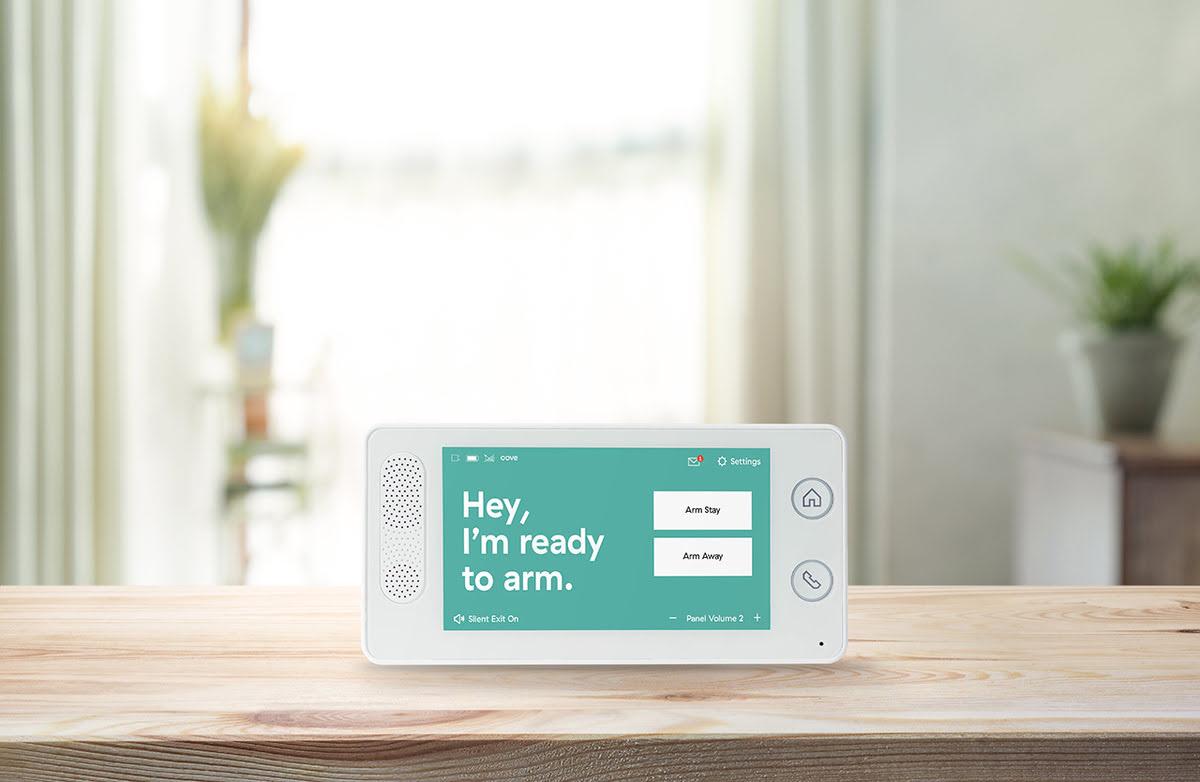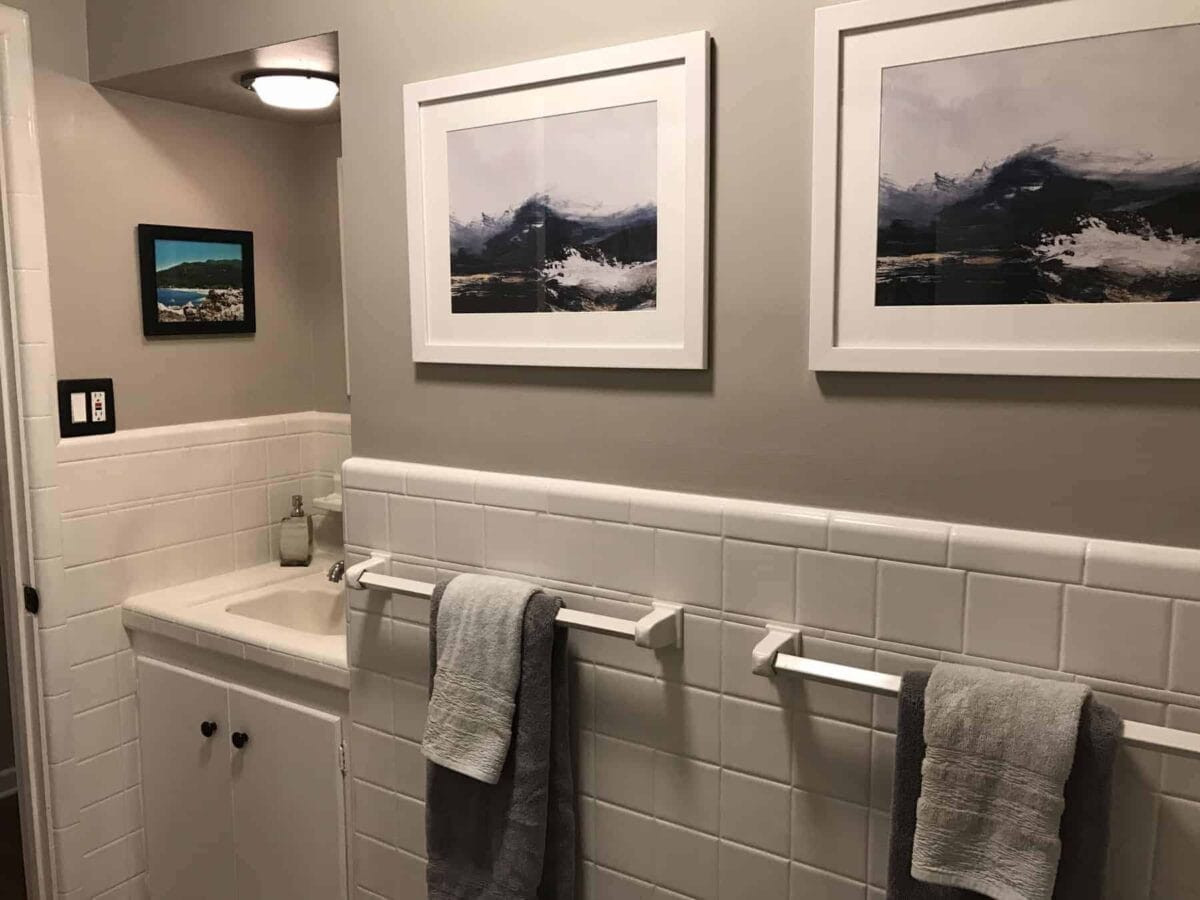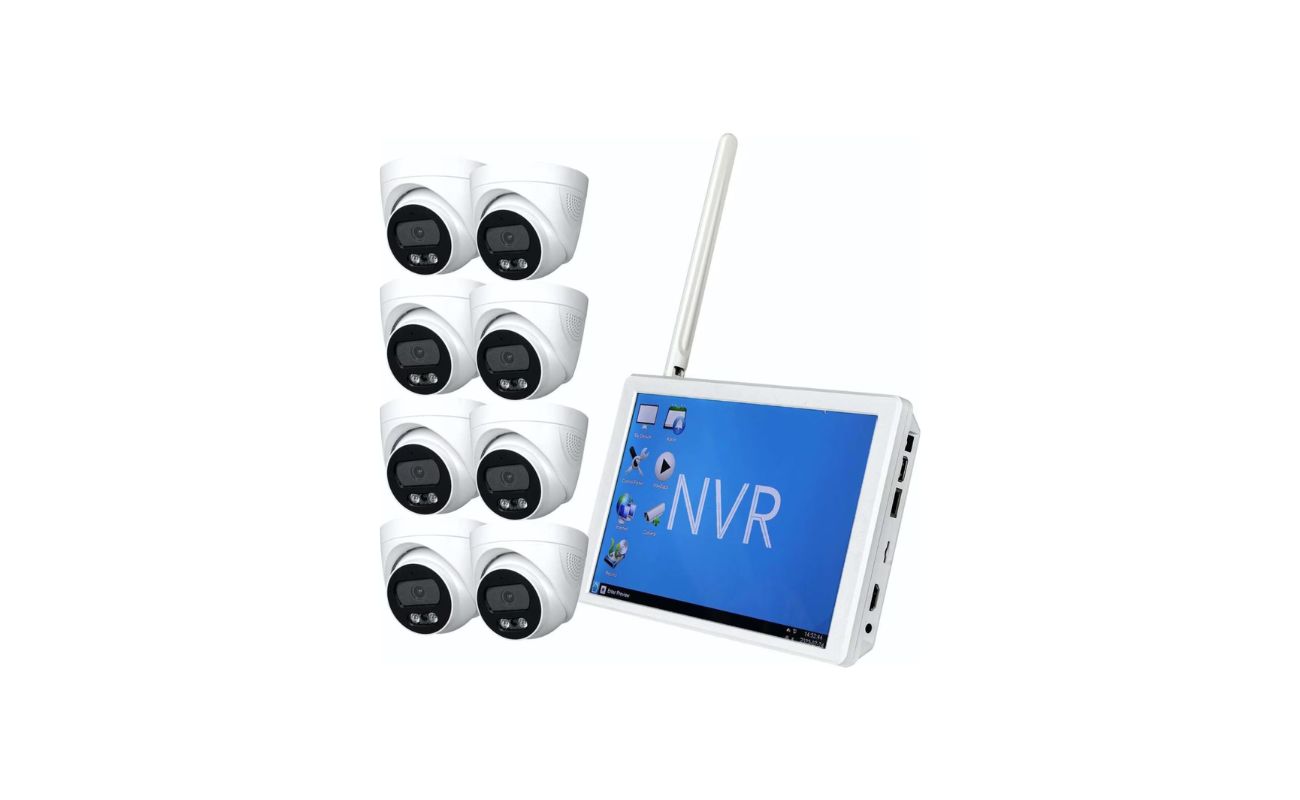Home>Home Security and Surveillance>How Can I Keep My Home Security Without A Landline


Home Security and Surveillance
How Can I Keep My Home Security Without A Landline
Modified: March 6, 2024
Discover how to maintain your home security and surveillance system without the need for a landline connection. Keep your loved ones and property safe with innovative alternatives.
(Many of the links in this article redirect to a specific reviewed product. Your purchase of these products through affiliate links helps to generate commission for Storables.com, at no extra cost. Learn more)
Introduction
Welcome to the world of home security and surveillance! In today’s digital age, keeping our homes secure has become more important than ever before. While traditional landline-based home security systems have been the norm for many years, technological advancements have given rise to wireless alternatives that offer convenience, flexibility, and improved functionality.
Gone are the days when a landline was a necessity for home security. With the advent of cellular networks, Voice over IP (VoIP) technology, and the Internet of Things (IoT), homeowners now have a range of options to choose from when it comes to securing their homes without relying on a landline connection.
In this article, we will explore the shift from landline to wireless home security systems, discuss the role of a landline in traditional security setups, and delve into the various wireless alternatives available in today’s market. We will also weigh the pros and cons of landline-free home security systems and provide guidance on choosing the right system for your specific needs.
So, if you’re ready to embrace the future of home security and bid farewell to the limitations of landline-based systems, read on to discover how you can keep your home secure without a landline.
Key Takeaways:
- Embrace the future of home security with wireless systems, offering flexibility, advanced features, and remote monitoring without the limitations of a landline connection.
- Consider the pros and cons of landline-free home security systems, such as reliability, remote monitoring, and potential cybersecurity risks, to make an informed decision for your home’s protection.
The Shift from Landline to Wireless Home Security Systems
The conventional landline-based home security systems of the past relied on a physical connection between the security control panel and the monitoring station. This connection was established through a landline telephone line, which transmitted signals and alerts in case of any security breaches or emergencies.
However, with the rapid advancement of technology, wireless alternatives have gained popularity and become the preferred choice for many homeowners. These wireless home security systems offer numerous advantages over their landline counterparts.
One of the primary benefits of wireless systems is their flexibility. Unlike landline systems that require physical wires and connections, wireless systems utilize wireless communication technology such as cellular networks, Wi-Fi, or radio frequencies. This eliminates the need for drilling holes, running cables, and dealing with complex installations, making it much easier and more convenient to set up and maintain a home security system.
Another significant advantage of wireless systems is their versatility. With a wireless system, you are not limited to a specific location or area within your home. Wireless sensors, detectors, and cameras can be easily installed and relocated as needed, providing you with the freedom to customize your security setup according to your preferences and the layout of your home.
Furthermore, wireless home security systems offer enhanced security features compared to traditional landline-based systems. They often come equipped with advanced technology like motion sensors, video surveillance cameras, remote monitoring capabilities, and smartphone integration. These features provide real-time alerts, video footage, and remote access to your security system, allowing you to monitor your home from anywhere, at any time.
Additionally, wireless systems are more resilient to external factors that can disrupt landline connections. Power outages, cut telephone lines, and physical tampering can render landline systems ineffective, leaving your home vulnerable. In contrast, wireless systems operate independently of external factors, ensuring continuous protection for your home even during challenging circumstances.
Overall, the shift from landline to wireless home security systems marks a significant advancement in home security technology. With their flexibility, versatility, enhanced features, and increased reliability, wireless systems offer homeowners a more robust and convenient solution for safeguarding their homes and loved ones.
Understanding the Role of a Landline in Home Security
Before we delve into the wireless alternatives for home security, it’s important to understand the role that a landline plays in traditional home security setups. A landline connection has been a staple in home security systems for decades, serving as a reliable medium for transmitting signals between the security control panel and the monitoring station.
In a landline-based home security system, when an alarm is triggered, the control panel sends a signal through the landline telephone line to the monitoring station. This signal alerts the monitoring personnel, who can then take appropriate actions, such as contacting emergency services or contacting the homeowner to verify the situation.
A landline connection is preferred by some homeowners due to its stability and reliability. Unlike wireless signals, which can be susceptible to interference or disruptions, a landline connection offers a consistent and robust means of transmitting security signals.
Additionally, landlines are not affected by power outages, making them a reliable communication channel during emergencies. Even if the power goes out, a landline connection can still function, ensuring that your home security system remains operational.
Furthermore, landline systems are often perceived as more secure since they are not vulnerable to hacking or digital vulnerabilities that could potentially compromise a wireless system. This can provide peace of mind for homeowners who prioritize security and want a system that is less susceptible to cyber threats.
However, despite their reliability, landline-based home security systems have limitations. As mentioned earlier, landline systems require physical wires and connections, which can be time-consuming and costly to install. They also lack the flexibility and versatility offered by wireless systems, as adding or relocating devices within your home may require rewiring or reconfiguring the system.
Moreover, as landline usage continues to decline, some homeowners may no longer have a traditional landline connection in their homes. This can present challenges in accessing or maintaining a landline-based home security system, pushing them towards seeking wireless alternatives.
Now that we have a better understanding of the role that a landline plays in traditional home security setups, let’s explore the wireless alternatives that have revolutionized the industry and provide a modern solution to keeping our homes safe and secure.
Wireless Alternatives for Home Security
With the evolution of technology, wireless alternatives have emerged as a popular choice for homeowners seeking flexibility, convenience, and advanced features in their home security systems. Let’s explore some of the main wireless alternatives available:
Cellular-based Home Security Systems:
Cellular-based systems utilize the same cellular networks that power our smartphones. Instead of relying on a landline or internet connection, these systems use a cellular signal to send alerts and communicate with the monitoring station. This makes them highly reliable, as they are not dependent on traditional communication infrastructure.
Cellular-based systems offer fast and secure communication, enabling real-time notifications and remote access through mobile apps. They also provide a backup battery in case of power outages, ensuring uninterrupted security for your home.
Voice over IP (VoIP) Home Security Systems:
VoIP home security systems utilize internet connections to transmit signals. With a VoIP system, the control panel sends alerts digitally over the internet to the monitoring station. This makes installation easier, as it eliminates the need for physical phone lines.
VoIP systems typically come with additional features such as video calling and integration with other smart home devices. However, it’s important to note that in case of internet outages or power failures, a VoIP system may lose its functionality, leading to potential security gaps.
Internet of Things (IoT) Home Security Systems:
IoT home security systems leverage the power of interconnected devices and sensors to create a smart and comprehensive security network. These systems connect various devices, such as cameras, motion detectors, door/window sensors, and smart locks, to a central hub, which can be controlled and monitored remotely through smartphone apps or web interfaces.
IoT systems offer advanced features like real-time notifications, video surveillance, and automation capabilities. They allow homeowners to customize and expand their security setup based on their needs. However, it’s important to ensure proper security measures are in place to protect against potential hacking or unauthorized access.
These wireless alternatives offer homeowners greater flexibility, convenience, and advanced features compared to traditional landline-based systems. They provide peace of mind by enhancing security and ease of use, making it easier than ever to keep your home protected.
Cellular-based Home Security Systems
Cellular-based home security systems have emerged as a reliable and effective alternative for homeowners seeking a wireless solution for their security needs. These systems utilize cellular networks, similar to the networks that power our smartphones, to establish a connection between the security control panel and the monitoring station.
One of the key advantages of cellular-based systems is their reliability. Unlike landline-based systems that can be vulnerable to physical tampering or disruptions, cellular systems operate independently, ensuring continuous communication between your home security system and the monitoring station. They are not reliant on external factors such as power outages or cut telephone lines.
Cellular-based systems offer fast and secure communication. When an alarm is triggered, the control panel sends a signal via the cellular network to the monitoring station, providing real-time alerts and allowing monitoring personnel to respond quickly and appropriately. This swift communication can be critical in emergency situations where every second counts.
Moreover, cellular-based systems often come with a backup battery, which ensures that your home security system remains operational even during power outages. This additional layer of protection provides peace of mind, knowing that your home is secure regardless of external factors.
Additionally, cellular-based systems offer convenience and flexibility. They are incredibly easy to install and set up since they eliminate the need for physical wiring or complicated configurations. This makes them an ideal choice for homeowners who want a hassle-free installation process.
Furthermore, many cellular-based systems offer mobile app integration, allowing you to control and monitor your home security system remotely. Through these apps, you can arm or disarm your system, receive instant notifications of any security events, and even access live video feeds from security cameras. This level of control and accessibility empowers homeowners to stay connected and in control of their home security, no matter where they are.
It is worth noting that cellular-based home security systems typically require a monthly subscription, as they rely on a data plan to function. However, this subscription cost is often offset by the peace of mind and enhanced capabilities that cellular systems provide.
Overall, cellular-based home security systems offer a reliable and convenient wireless alternative for homeowners. With their secure communication, backup power, ease of installation, and remote monitoring capabilities, these systems provide an effective solution to protect your home and loved ones.
Voice over IP (VoIP) Home Security Systems
Voice over IP (VoIP) technology has revolutionized communication by transmitting voice and multimedia content over the internet instead of traditional telephone lines. In recent years, this technology has made its way into the realm of home security systems, providing homeowners with a wireless alternative to landline-based security setups.
VoIP home security systems utilize an internet connection to transmit signals and communicate with the monitoring station. Instead of relying on physical telephone lines, these systems leverage the power of the internet to establish a connection between your home security control panel and the monitoring center.
One of the key advantages of VoIP systems is the ease of installation. They eliminate the need for physical phone lines, making the setup process simpler and more convenient. Without the hassle of wiring installations, homeowners can quickly get their security system up and running.
VoIP systems offer additional features that enhance the functionality of your home security setup. Many systems come with video calling capabilities, allowing you to communicate with the monitoring station via video streams in case of an emergency. This feature provides an extra layer of reassurance and ensures that the monitoring personnel have access to visual information about the situation in your home.
Furthermore, VoIP home security systems often integrate seamlessly with other smart home devices and automation systems. You can control and manage your security system using smartphone apps or web interfaces, allowing you to arm or disarm your system, receive notifications, and monitor your home remotely. This level of control and customization empowers homeowners to tailor their security system to meet their specific needs.
However, it’s important to note that VoIP systems may have certain limitations. One potential drawback is their reliance on a stable internet connection. In the event of an internet outage or power failure, the functionality of the security system may be compromised. This vulnerability can pose a challenge in maintaining a consistent level of security for your home.
Another consideration with VoIP systems is the potential for cybersecurity threats. As these systems operate over the internet, they can be susceptible to hacking or unauthorized access if proper security measures are not in place. It is crucial to implement strong passwords, utilize encrypted connections, and regularly update firmware and software to mitigate these risks.
Despite these considerations, VoIP home security systems offer a wireless and convenient alternative to traditional landline setups. With their easy installation process, video calling capabilities, and integration with other smart home devices, VoIP systems provide homeowners with a modern and versatile approach to home security.
Internet of Things (IoT) Home Security Systems
The Internet of Things (IoT) has transformed the way we live, and it has also revolutionized the field of home security. IoT home security systems leverage interconnected devices and sensors to create a smart and comprehensive security network for your home.
IoT home security systems consist of various devices, such as cameras, motion detectors, door/window sensors, and smart locks, all connected to a central hub. This hub acts as the brain of the system, communicating with the devices and allowing you to control and monitor your security system remotely through smartphone apps or web interfaces.
One of the key advantages of IoT home security systems is their scalability and customizability. You have the freedom to add or remove devices based on your specific needs and preferences. This flexibility allows you to create a comprehensive security network tailored to the layout and requirements of your home.
IoT systems go beyond traditional security measures. They offer advanced features such as real-time notifications, video surveillance, and automation capabilities. With real-time notifications, you’ll receive instant alerts on your smartphone or other connected devices when a security event occurs, enabling you to react quickly. Video surveillance capabilities allow you to access live camera feeds from anywhere, providing visual insight into the situation at your home.
Moreover, IoT home security systems often integrate with other smart home devices, expanding their functionality and enhancing the overall convenience. You can synchronize your security system with devices like smart lights, thermostats, and voice assistants to create a seamless and interconnected smart home ecosystem.
However, with the benefits come a few considerations. With the increased interconnectedness of devices, it’s important to prioritize security and protect against potential vulnerabilities. Implementing strong passwords, using encrypted connections, and regularly updating firmware and software are essential to ensure the security of your IoT home security system.
Additionally, as IoT systems heavily rely on internet connectivity, any disruption to your internet connection can affect the functionality of the system. It’s crucial to have a reliable and stable internet connection to ensure consistent operation.
Despite these considerations, IoT home security systems offer a modern and comprehensive solution for protecting your home. With their scalability, advanced features, and integration capabilities, these systems provide homeowners with a versatile and intelligent approach to home security.
Pros and Cons of Landline-Free Home Security Systems
Landline-free home security systems, also known as wireless systems, offer several advantages over traditional landline-based systems. However, it’s important to consider both the pros and cons before making a decision. Let’s explore the benefits and limitations of adopting a landline-free home security system:
Pros:
- Flexibility and Ease of Installation: Wireless systems are typically easier to install and set up compared to landline-based systems. They eliminate the need for physical wiring, making installation a hassle-free process. This flexibility allows homeowners to customize their security setup and easily add or relocate devices as needed.
- Reliability and Continuity: Wireless systems, such as cellular-based or VoIP systems, offer reliable communication channels that are not affected by power outages or disrupted telephone lines. This ensures continuous protection for your home, even in challenging situations.
- Remote Monitoring and Control: Many wireless systems offer mobile app integration, allowing you to remotely control and monitor your home security system. You can receive real-time notifications, access video feeds from security cameras, and arm or disarm your system from anywhere, providing convenience and peace of mind.
- Advanced Features: Wireless systems often come equipped with advanced features such as motion detectors, video surveillance, home automation capabilities, and integration with other smart home devices. These features enhance the overall security, convenience, and functionality of your home.
- No Reliance on a Landline: As landline usage continues to decline, wireless systems offer an alternative for homeowners who no longer have a traditional landline connection in their homes. This eliminates the need for maintaining landline service solely for the purpose of home security.
Cons:
- Internet Reliance: Some wireless systems, such as VoIP or IoT systems, rely on internet connectivity. In the event of internet outages or power failures, the functionality of these systems can be compromised. It’s essential to have a stable internet connection to ensure continuous operation and communication.
- Subscription and Monthly Costs: Many wireless systems require a monthly subscription for services such as cellular connectivity or data plans. While the cost is often offset by the added features and convenience, it’s important to factor in the ongoing expenses of a wireless system.
- Potential Cybersecurity Risks: Wireless systems, particularly those connected to the internet, may be susceptible to hacking or unauthorized access if not properly secured. It’s crucial to implement strong passwords, encrypted connections, and regular software updates to mitigate these risks.
- Device Compatibility and Interoperability: With wireless systems, compatibility and interoperability between devices can be a concern. It’s essential to ensure that the devices you choose for your security setup are compatible and can seamlessly communicate with each other to maximize the system’s effectiveness.
- Initial Costs: While wireless systems offer long-term benefits, the initial investment can be higher compared to traditional landline-based systems. The cost of devices, installation, and any required subscriptions should be considered when evaluating the overall expense.
Considering both the advantages and disadvantages can help you make an informed decision regarding the adoption of a landline-free home security system. Assess your specific needs, budget, and the level of security you require to determine the most suitable option for your home.
Factors to Consider When Choosing a Landline-free Home Security System
When selecting a landline-free home security system, it’s essential to take into account various factors to ensure that the system meets your specific needs and provides reliable and effective protection for your home. Here are some key considerations to keep in mind:
1. Connectivity Options:
There are different wireless connectivity options available for home security systems, such as cellular-based, VoIP, or IoT systems. Consider the availability and reliability of these connectivity options in your area. Evaluate the quality of cellular networks, the stability of your internet connection if considering VoIP or IoT systems, and the level of coverage provided by the chosen wireless connectivity.
2. System Integration:
Determine if the home security system can integrate with other smart home devices you may already have or plan to add in the future. Integration allows for a seamless ecosystem of devices and enables streamlined control and monitoring through a single platform or mobile app.
3. Features and Advanced Capabilities:
Assess the specific features and capabilities offered by the home security system. Consider features such as motion detection, video surveillance, remote monitoring, smartphone notifications, and home automation functionality. Determine which features align with your security requirements and personal preferences.
4. Ease of Use:
Consider the user-friendliness of the system and the accessibility of controls and settings. A well-designed and intuitive interface can make it easier to operate and manage your home security system efficiently and effectively.
5. Monitoring Options:
Decide whether you want professional monitoring services or if self-monitoring would suffice. Professional monitoring involves a third-party monitoring station that can alert authorities in case of an emergency. Self-monitoring gives you direct control over receiving notifications and taking necessary actions when an alarm is triggered.
6. Battery Backup:
Ensure that the home security system has a reliable battery backup to keep it operational in the event of a power outage. A backup battery can ensure continuous protection during times when the primary power source is unavailable.
7. Customer Support and Reputation:
Research the reputation of the home security system provider. Look for customer reviews, ratings, and feedback on their products and services. Consider the responsiveness and availability of customer support to address any technical issues or concerns that may arise.
8. Cost and Pricing:
Evaluate the overall cost of the home security system, including equipment, installation, and any ongoing monthly subscription fees. Consider what you’re getting for the price and assess the value and benefits offered by the system compared to its cost.
By considering these factors, you can make an informed decision and choose a landline-free home security system that aligns with your needs, preferences, and budget while providing effective protection for your home and peace of mind for you and your family.
Frequently Asked Questions (FAQs)
1. Can I use a landline-free home security system if I don’t have a traditional landline connection?
Absolutely! Landline-free home security systems utilize wireless technology such as cellular networks, VoIP, or IoT connectivity. You do not need a traditional landline connection to use these systems, making them a viable option for homes without a landline.
2. Are landline-free systems as reliable as traditional landline-based systems?
Yes, landline-free systems can be just as reliable, if not more so, than traditional landline-based systems. Cellular-based systems operate independently of external factors like power outages or cut telephone lines. However, it’s essential to choose a quality system with a reliable wireless connection and a backup power source.
3. Do landline-free systems require an internet connection?
Not all landline-free systems require an internet connection. Cellular-based systems utilize cellular networks, while VoIP systems rely on the internet. Some IoT systems may require an internet connection for enhanced features and remote access. Ensure you understand the connectivity requirements of your chosen system before making a decision.
4. Can I monitor a landline-free security system remotely?
Yes, many landline-free systems offer remote monitoring capabilities. This allows you to monitor and control your security system through mobile apps or web interfaces. You can receive real-time alerts, view video feeds, arm or disarm your system, and more, providing added convenience and peace of mind.
5. Can I add devices or expand my landline-free system in the future?
Yes, one of the advantages of landline-free systems is their flexibility. They allow for easy addition and relocation of devices as needed. Whether you want to add more sensors, cameras, or other smart home devices, you can customize and expand your system to meet your evolving needs.
6. Are landline-free home security systems more expensive than traditional ones?
Landline-free home security systems can have varying costs, depending on the features and capabilities they offer. While the initial investment may be higher than traditional systems, consider the long-term benefits, such as advanced features, remote monitoring, and the ability to customize your setup. Assess the overall value and choose a system that fits within your budget.
Read more: How To Keep Wasps Off My Security Camera
7. How secure are landline-free systems from hacking or unauthorized access?
Security is an important consideration for all home security systems, including landline-free systems. Ensuring strong passwords, utilizing encrypted connections, and regularly updating firmware and software are crucial steps to safeguard your system from potential cybersecurity risks. It’s important to choose reputable providers that prioritize security and offer robust protection for your home.
8. Can I still get professional monitoring with a landline-free home security system?
Yes, many landline-free systems offer professional monitoring services. These services involve a third-party monitoring station that can alert authorities in the event of an emergency. You can choose to subscribe to professional monitoring or opt for self-monitoring if you prefer to handle notifications and actions yourself.
9. Do I need any technical expertise to install and operate a landline-free home security system?
Most landline-free systems are designed for easy installation and use. They come with comprehensive instructions and user-friendly interfaces that make setup and operation straightforward. However, if you’re unsure or prefer assistance, professional installation services may be available from the system provider.
10. Can I take my landline-free security system with me if I move?
Yes, landline-free systems are typically portable and can be easily dismantled and reinstalled in a new location. This flexibility allows you to take your security system with you when you move, providing security for your new residence as well.
If you have any specific questions or concerns about landline-free home security systems, it’s always recommended to reach out to the system provider directly for more information and clarification.
Read more: How Can I Start Home Security Monitoring
Conclusion
Home security is a top priority for homeowners, and with the shift from landline to wireless systems, ensuring the safety of your property and loved ones has become more convenient and versatile than ever before.
Wireless alternatives, such as cellular-based, VoIP, and IoT home security systems, offer numerous advantages over traditional landline-based setups. These wireless systems provide flexibility and ease of installation, reliable communication channels, advanced features, and the ability to monitor and control your system remotely.
When making the switch to a landline-free home security system, it’s essential to assess various factors. Consider your connectivity options, evaluate system integration capabilities, review the features and advanced functionalities, and ensure ease of use. Keep in mind battery backup availability, customer support options, and overall costs, including any necessary subscriptions.
While landline-free systems offer many benefits, it’s important to consider potential drawbacks. Evaluate the reliance on internet connectivity, cybersecurity risks, device compatibility, and initial costs associated with wireless systems.
Ultimately, choosing a landline-free home security system allows you to embrace the advancements in technology and tailor your security setup to meet your specific needs. Whether you opt for a cellular-based system for its reliability, a VoIP system for its ease of installation, or an IoT system for its advanced features, wireless alternatives provide convenient, effective, and customizable solutions for protecting your home.
By considering the pros and cons, understanding the role of a landline in home security, exploring wireless alternatives, and weighing the factors to consider, you can make an informed decision that suits your requirements and preferences.
Step into the future of home security and embrace the convenience and peace of mind that landline-free systems provide. Safeguard your home, protect your loved ones, and enjoy the benefits of modern technology in ensuring the security of what matters most.
Frequently Asked Questions about How Can I Keep My Home Security Without A Landline
Was this page helpful?
At Storables.com, we guarantee accurate and reliable information. Our content, validated by Expert Board Contributors, is crafted following stringent Editorial Policies. We're committed to providing you with well-researched, expert-backed insights for all your informational needs.







